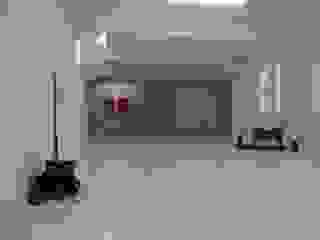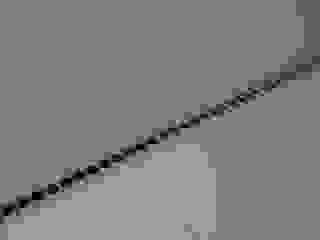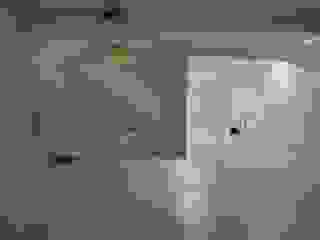Bremer Freiheit
25.06.–02.10.05Ralf Berger, Mathilde ter Heijne, Olaf Nicolai, Thomas Rentmeister, Gregor Schneider, Clemens von Wedemeyer
“I wanted to save you from having to continue leading the life that you lead.”
Geesche Gottfried in: Bremer Freiheit / Bremen Coffee (1971), R.W. Fassbinder
Rainer Werner Fassbinder wrote his tragic play Bremer Freiheit about the serial killer Geesche Gottfried in 1971. Her first murder (she poisoned someone in self-defence) was followed by a murder committed out of love, then one committed out of despair, and finally there was the murder which was to bring liberation from a suffocating suppression, but only led to further fatal encroachments on other people’s lives. Geesche calmly accepts her own impending death, which has lost its terror for her having long since become her accomplice. The figure of Geesche Gottfried and her motives have exerted a fascination for centuries. Even today, the granite sculpture in Domshof documenting Geesche Gottfried’s execution still inspires people to spit at it in contempt. Is the famous poisoner Gesina a bride of the devil, to refer to the title of a play written anonymously in 1829? Or is she, as suggested in Fassbinder’s version, a terrorist battling against heteronomy, domestic violence, against suppression in a Christian-paternalistic guise and against biedermeier small-mindedness?
The exhibition Bremer Freiheit contains works dealing with various forms of violence and the constellations in which violence can thrive. The works by Ralf Berger, Mathilde ter Heijne, Olaf Nicolai, Thomas Rentmeister, Gregor Schneider and Clemens von Wedemeyer challenge us to reconsider Fassbinder’s play Bremer Freiheit.
PROGRAM
13 July 8 p.m. Bremer Freiheit by R.W. Fassbinder (1972). In cooperation with Kino 46, Waller Heerstr. 46, 28217 Bremen
10 August 7.30 p.m. Hausbesuch: Guided tour through the exhibition and the studios of Theresia Janssen and Astrid Nippoldt
7 September 7.30 p.m. Film evening at the Künstlerhaus: Big Business, Laurel & Hardy (1929); Süßes Gift, Claude Chabrol (2000)






